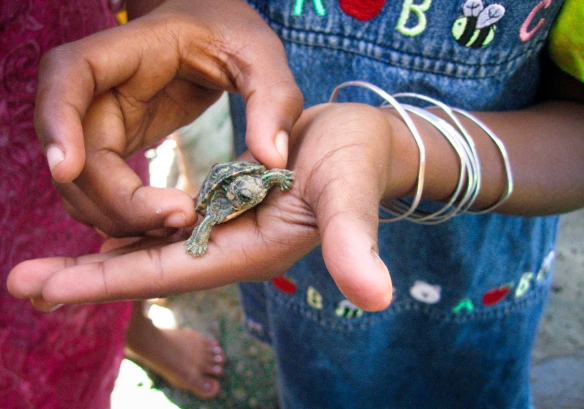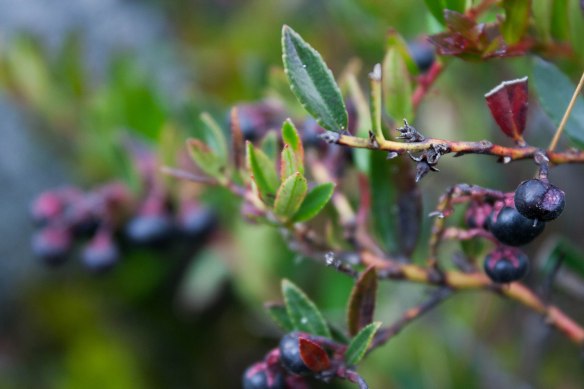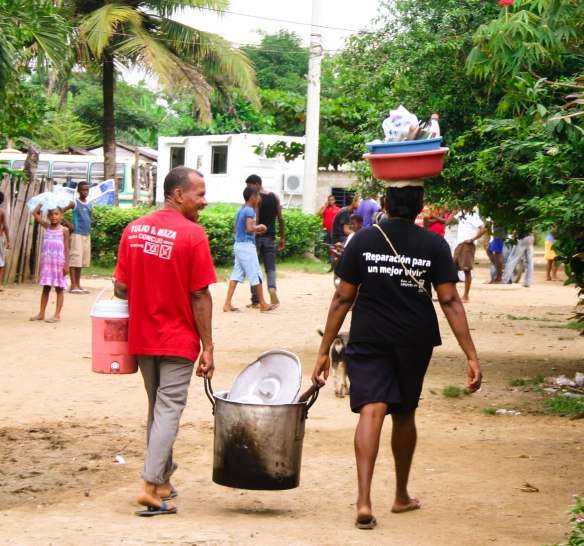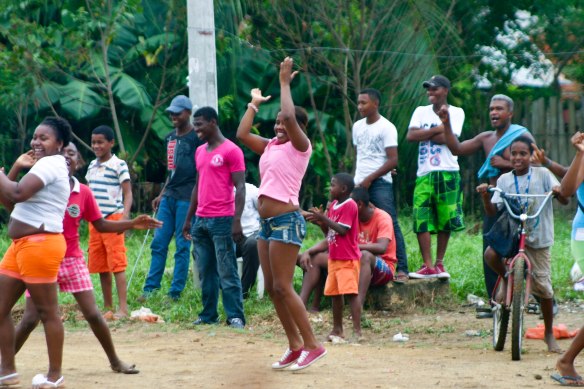
Anna Vogt is the MCC LACA Advocacy and Policy Analyst. This post was originally published on Anna’s personal blog.
When I used to sit on street corners in Mampujan and drink apple flavoured pink pop with my neighbours, the conversation sometimes turned to the months and years directly after the community’s displacement in 2000. People would tell me about multiple families living together in one classroom of the Maria la Baja school, poorer than poor. More than the poverty of their living conditions, however, what my neighbours lamented most was their lack of dignity.
“Anna,” they would tell me, “Mampujan used to be the place where everyone came to experience our hospitality. No one could pass through the community without being welcomed and feed. People would come from far away for horse races and rooster fights, to bathe in our creeks and play baseball.”
Everything changed when the conflict arrived. The municipality of Maria la Baja could not handle all of the displaced victims, let alone those from Mampujan. A common tactic of the paramilitaries that ordered the community to flee was to accuse campesinos of being guerrillas in order to justify violence and take their land. Instead of being a respectable community, to be a Mampujanero was suddenly synonymous with being poor, helpless, landless, and worse than anything: accused of being members of an armed group.
During the preparation for our march, we had many conversations about the need for complete non violence; these conversations often centred on the idea of dignity restoration. “We will not leave even one candy wrapper on the ground or engage in any sort of argument,” people declared. “We will show the country who we really are as Mampujaneros.”
On Friday, I was making the-best-cake-ever and podcasting. In between melting chocolate and beating egg whites, I listened to Adrienne Clarkson (who came to Canada as a refugee) lecture on citizenship and belonging. Although the lectures were originally aired in 2014, they felt more timely than ever in light of a news heavy week, filled with mixed emotions.
In Guatemala, sustained nonviolent protest brought together a country and brought down a corrupt government. On a beach in Turkey, Alan Kurdi, along with his brother and mother, drowned and brought millions of people around the world to a reawakened awareness of the plight of refugees.
Sorrow and triumph; people power and despair; dignity and death. How do we respond?
 Iturned off the mixer when Clarkson started speaking about the importance of collective imagination in who we become and the kind of society we create. Here, the philosophy of As If plays a needed role, as we act out the future we would like to see, whether we believe it fully possible or not. We behave As If we can take down a corrupt politician. As If we can restore our good name. As If nonviolence was possible. As If we all belonged.
Iturned off the mixer when Clarkson started speaking about the importance of collective imagination in who we become and the kind of society we create. Here, the philosophy of As If plays a needed role, as we act out the future we would like to see, whether we believe it fully possible or not. We behave As If we can take down a corrupt politician. As If we can restore our good name. As If nonviolence was possible. As If we all belonged.
“The world of culture, the world of the mind, and the examination of the spiritual are all part of that central movement defined by As If. When we behave As If we care about each other, As If we encourage everyone to be part of the group, As If we are all equal, we are actually living a metaphor.”
Whenever I go back to Mampujan, conversations always touch on the march. The feelings of doubt and hesitation that dominated the community the week before we marched have been replaced with confidence and a new reputation. There were people who did not march because they did not think it would make a difference. Yet, when we came back from Cartagena, filled with new energy, the community collectively decided that every person in Mampujan, whether they had walked or not, would receive a bag of the leftover food a government agency had donated to the marchers.
It was As If everyone was an equal participant in the same community and As If the dignity of all was equally important. Where rejection had once been the norm, generosity was going to take its place. Like in any community, there are still issues, but to act As If the community as a whole mattered also restored dignity as Mampujan showed themselves who they really were.
The more current example of Guatemala shows people acting together on a national level As If they believed that things could be different.
Yet, so did Alan’s family, and the thousands of families like his, from the Middle East and Central America and Colombia and around the world who are desperately doing anything it takes to find safety, only to be meet by a world of discrimination that often refuses to not only recognize their dignity, but also besmirches it.
I do not know what it is like to be faced with those impossible choices nor do I believe everything has a happy ending but despair is not the answer either.
What would it look like As If we thought we could make a difference by coming together as civil society in Guatemala did? As If we could both open our homes and change our foreign policy? As If a negotiated solution to end conflict is a better option that supplying weapons? As If we could play a role in recognizing humanity and restoring dignity? As If a group of committed people had the power to declare that no one is illegal?
“In our new Gilded Age, the quiet voice of ubuntu has been drowned out in the polarizing din of right-vs-left politics. Communal relationships and institutions that work for the common good have fallen out of fashion. But none of us can ever be totally independent and self-sufficient. The responsibility and duty we owe to to each other is universal. We learn very early in life that we need not only to accept help but also to give help when it is needed.”

As an aside, it has been amazing to see the response so far of people all over the world!



